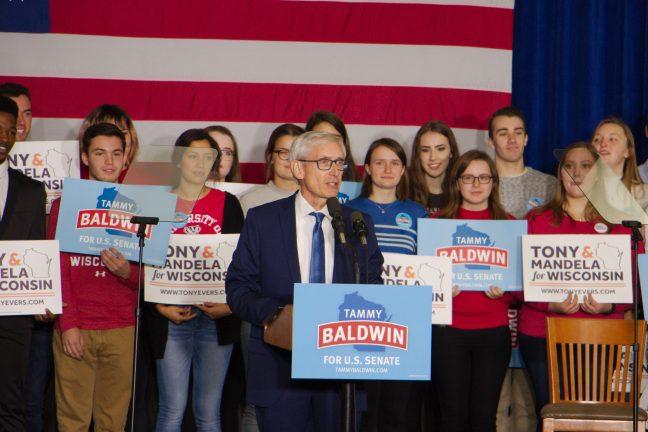With less than a week until the Nov. 6 midterms, a new Marquette Law School Poll found the two Wisconsin gubernatorial candidates tied and Sen. Tammy Baldwin enjoying a substantial lead over her opponent.
Republican Gov. Scott Walker and Democrat challenger Tony Evers both received 47 percent support from likely voters in the latest polling. Among all registered voters polled, Walker held onto a slight lead, though, with 47 percent to Evers’ 45 percent.
Marquette Law School defines likely voters as those who say that they are certain to vote in the November election.
In the race for U.S. Senate, incumbent Democrat Tammy Baldwin, D-Wisconsin, leads Republican challenger Leah Vukmir by 11 percent – with 54 percent of likely voters saying they will vote for Baldwin and 43 percent supporting Vukmir.
For attorney general, likely voters slightly prefer Republican incumbent Brad Schimel to Democrat Josh Kaul, with 47 percent going for Schimel and 45 percent for Kaul.
The gap between Evers and Walkers tightened since the organization’s last polling, while the gap between Baldwin and Vukmir widened slightly. Results for Schimel and Kaul essentially remained the same.
The poll found that low voter turnout will likely benefit Evers, while high voter turnout will benefit Walker. The opposite is true for the U.S. Senate race, where low voter turnout will likely benefit Vukmir, while high voter turnout will benefit Baldwin.
For 25 percent of likely voters, the most important issue this election is health coverage. K-12 education, jobs and the economy close out as the top three most important issues. The condition of roads ranked fourth, with 12 percent choosing it as most important.
Respondents who said health care coverage and K-12 education were the most important issues going into the midterms vastly favored Evers and Baldwin. But the opposite held true for respondents who said jobs and the economy were most important, as they vastly favored Walker and Vukmir.
The majority of respondents preferred increasing funding for public schools. Fifty-five percent said they would rather increase spending on public schools than reducing property taxes. Forty percent said the opposite.


